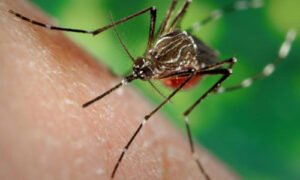
Two subjects, one male and one female, have become the first two confirmed cases of Zika infection in Ireland. It is understood both have recently returned to the country from overseas.
A statement released by the HSE said “The HSE was informed today of two unrelated cases of Zika virus infection in two adults who are currently well and fully recovered,”
“Both individuals have a history of travel to a Zika affected country. These are the first cases of Zika virus infection confirmed in Ireland. Neither case is at risk of pregnancy.
“The finding of Zika cases in Ireland is not an unexpected event as many other European countries have reported cases as a result of travel to affected areas. Currently, outbreaks of Zika virus are occurring in some countries in South and Central America, the Caribbean and the Pacific Islands.
“Infection when it occurs usually results in a mild illness that typically lasts between 2 to 7 days. The majority of people who become infected by Zika virus have no symptoms. Zika virus is spread through the bite of a mosquito that is in certain countries but which is not present in Ireland.
“While almost all cases of Zika virus are acquired via mosquito bites, one case of sexual transmission of Zika virus has been reported internationally, however the risk of sexual transmission of Zika virus is thought to be extremely low.”
The current Zika outbreak has now been declared a global health emergency by the World Health Organisation (WHO). Reports confirm that the virus is spreading “explosively” throughout Latin America.
Zika is transmitted by the Aedes aegypti mosquito, a vector for several tropical diseases. In otherwise healthy adults, it causes a mild illness called Zika Fever, with flu-like symptoms including fever, rash and joint pain.
However, pregnant women bitten by a carrier mosquito is at risk of passing the disease on to the unborn fetus, which may develop congenital malformations like microcephaly.


